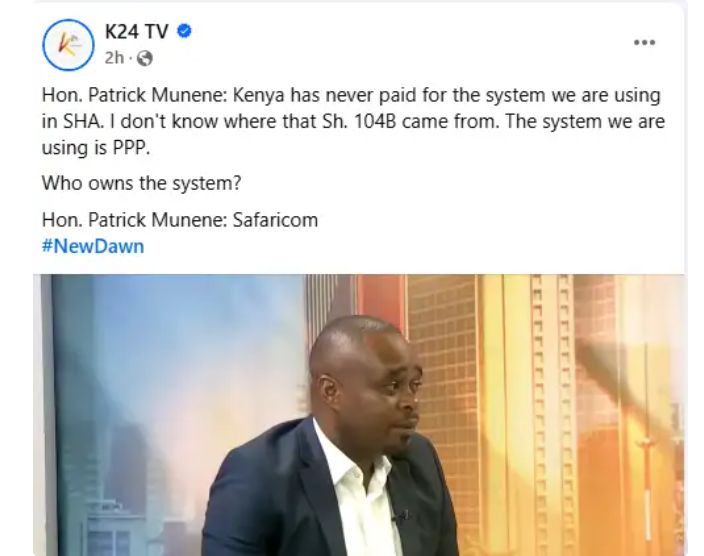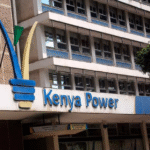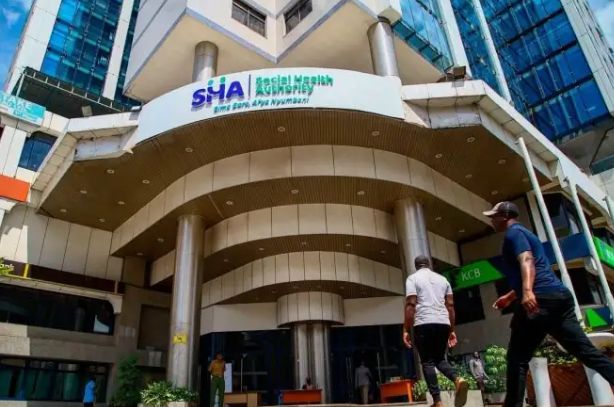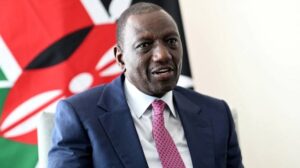Hon. Patrick Munene, a government official, has raised serious concerns about the System for Health Administration (SHA) in Kenya. He recently stated that the Kenyan government has not paid for the system, despite reports that it cost the country 104 billion Kenyan shillings.
His remarks have caused confusion and raised questions about where the money came from and whether the amount is accurate.
The SHA is part of a Public-Private Partnership (PPP), meaning the government and a private company share the costs, risks, and benefits.
According to Hon. Munene, the government did not pay for the system but instead partnered with a private company to implement and operate it.
This statement contradicts the massive figure of Sh. 104B, leaving many wondering whether the cost was inflated, misreported, or if the funds were diverted elsewhere.
Hon. Munene stated, “Kenya has never paid for the system we are using in SHA. I don’t know where that Sh. 104B came from.
The system we are using is PPP.” His words suggest that the government may not have spent taxpayer money directly on the system, yet somehow, a large financial figure is being associated with it. If Kenya did not pay for it, where did the Sh. 104B go?
This is the question many people are now asking.The official further revealed that Safaricom, Kenya’s biggest telecommunications company, owns the SHA system.

According to him, Safaricom is responsible for the technology and maintenance of the system, while the government works with the company to ensure its operation. This revelation brings in more concerns about transparency and control.
If the system is owned and managed by a private company, how much authority does the government have over it? Does Safaricom have more control over Kenya’s health administration than the government itself?
This information adds to the ongoing scrutiny of public-private partnerships in Kenya. While PPPs are meant to ease the financial burden on the government and improve efficiency, they also open the door for potential exploitation.
If Safaricom owns and controls the system, what are the terms of the partnership? What does the government pay in terms of maintenance and operational fees?
Many Kenyans are now demanding more clarity. If the government did not pay for SHA, why was a figure of Sh. 104B mentioned? If Safaricom owns the system, how does this affect government oversight of health data?
These are serious questions that require answers. The situation highlights the need for more transparency in government projects, especially those involving public funds and private companies.





















Add Comment